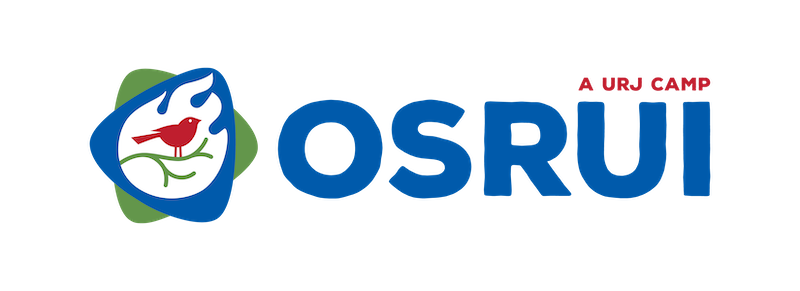by Rabbi Taron Tachman and Vanessa Ehrlich, Moshavah Segel (Faculty)
It has been often said that what makes summer camp so important is that the experience builds confidence, self-esteem, resilience, independence and social skills in our children and teens. When we send our kids to camp they come back stronger and wiser, more mature and more responsible. You know what we mean, right? Somehow, in such a short time, our kids have grown exponentially in spirit and mind and we can’t help but wonder what magic brought about positive change!
 Were we to ask our kids to explain, their answers would likely be as brief as the letters they send from camp describing their experiences. Again, you know what we mean!
Were we to ask our kids to explain, their answers would likely be as brief as the letters they send from camp describing their experiences. Again, you know what we mean!
So, since our kids won’t likely tell us what led to their transformation, we want to share with you just one of many activities which we think helps chanichim (campers) grow as people.
As visiting rabbis, cantors and educators, spending two weeks at Olin-Sang-Ruby Union Institute’s eidah (unit) called Moshavat HaTeva, we not only have the opportunity to enhance the worship and Jewish learning experiences for the chanichim, we also have the chance to get to know them and hopefully inspire and encourage them to be their best. What distinguishes Moshavat HaTeva from other eidot at camp is that Mosh takes four-day outdoor adventure trips such as hiking, rock climbing, canoeing, and biking. On such trips, we as segel, also accompany the chanichim and tzevet (staff).
As a Mosh tradition, usually on the last night of the trip, the madrichim (counselors) build a fire and do an activity they call “Fishbowl.” As the chanichim comfortably sit around the campfire, surrounded by friends, the madrichim pass out little strips of paper and markers and direct the chanichim to anonymously write a question, ANY question that they would like the madrichim (and the segel, if present) to answer aloud for the group.
As you might imagine, some of the questions the chanichim pose are silly, such as “waffles or pancakes?” and “Is water wet?” Such questions are answered with humor and fun. The real magic comes when they really dig deep and make the most of their chance to ask a small group of older, wiser and more experienced mentors questions that are of real concern to them. As teens about to enter high school, Mosh chanichim are often hungry for guidance and do have great questions about life – that’s what makes this activity so powerful. To give you an idea of what we are talking about, here are a few actual examples of questions chanichim posed to madrichim and segel in two recent fishbowl sessions:
- What moment in your life defined you as person, for good or for bad?
- How long did it take for you to figure out what you wanted to be when you grew up?
- Are drugs really bad for you? Why?
- How do you know if love is true love?
- What should I look for in a romantic relationship? How about in a friend?
- How do you deal with bad people in high school if you see them every day?
- I feel like I am super passive, but I don’t want to be. Any suggestions?
- How do you boost your self-confidence?
- What’s your best life advice/high school advice?
- Why do you care about being Jewish?
 What is so incredible to witness almost every time this activity is done is how astutely the chanichim listen to and take to heart answers from their madrichim and segel. The madrichim who are hired at OSRUI represent the best of their generation. They are respected and admired by the chanichim and viewed as role models. Because the madrichim are just a few years older than the chanichim, they themselves have recently faced and overcome many of the same struggles the chanichim ask about and they are perfectly positioned to connect in a strong and responsible way. One by one, with charisma, humor, storytelling, honesty, and sincerity the madrichim, in an age appropriate manner, transmit their wisdom and values from one generation to the next and we segel do the same. It’s a beautiful thing to see.
What is so incredible to witness almost every time this activity is done is how astutely the chanichim listen to and take to heart answers from their madrichim and segel. The madrichim who are hired at OSRUI represent the best of their generation. They are respected and admired by the chanichim and viewed as role models. Because the madrichim are just a few years older than the chanichim, they themselves have recently faced and overcome many of the same struggles the chanichim ask about and they are perfectly positioned to connect in a strong and responsible way. One by one, with charisma, humor, storytelling, honesty, and sincerity the madrichim, in an age appropriate manner, transmit their wisdom and values from one generation to the next and we segel do the same. It’s a beautiful thing to see.
The overall effect is the creation of magical teaching moments where chanichim learn how to live at their best. They then come back to you stronger, wiser and hopefully a little more grown up and even a little bit more awesome than they were when you dropped them off just a few weeks ago You know what we mean, right?
Rabbi Taron Tachman serves as Rabbi of Beth Tikvah Congregation in Hoffman Estates, IL. Vanessa Ehrlich serves as Director of Lifelong Learning at Lakeside Congregation in Highland Park, IL.

